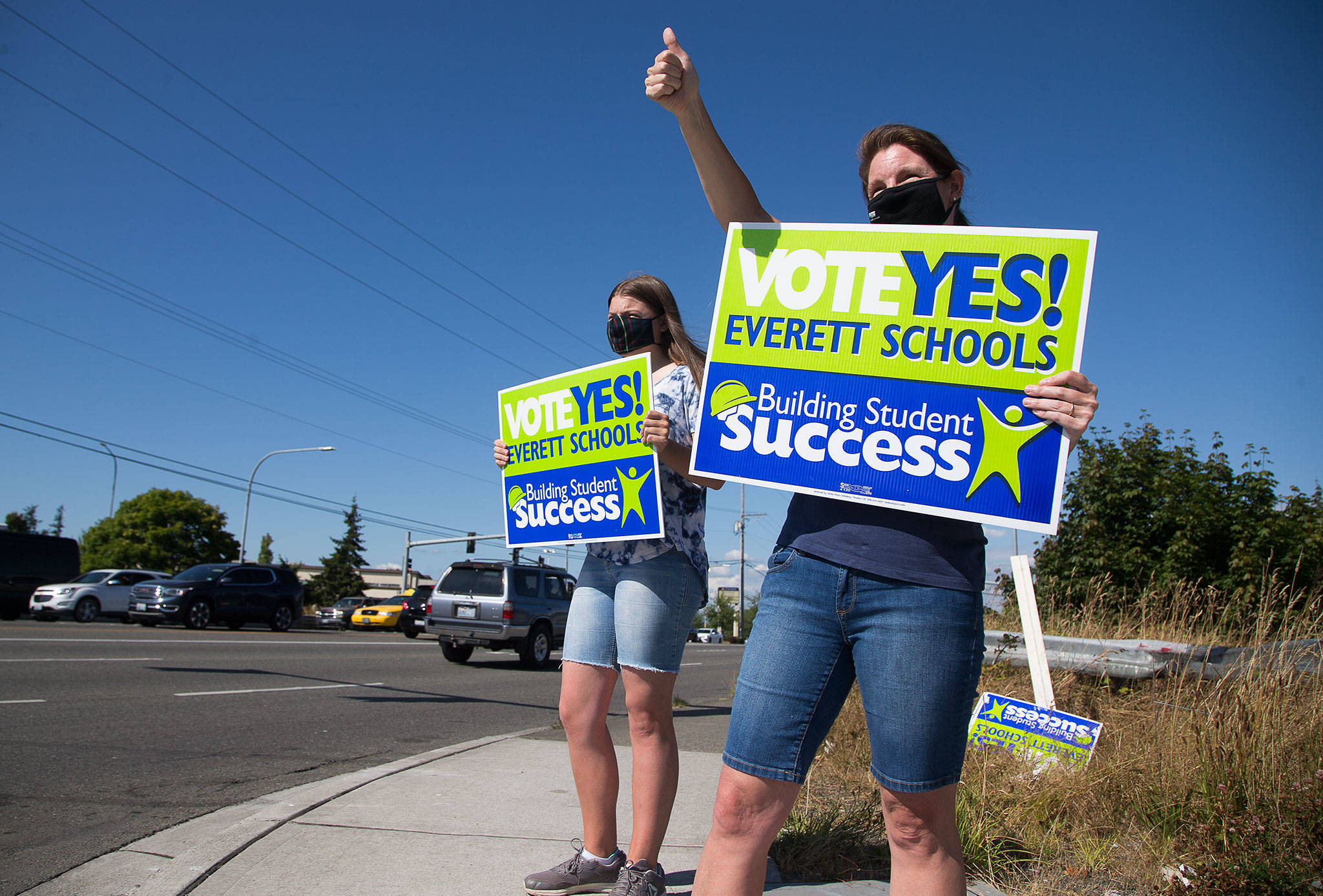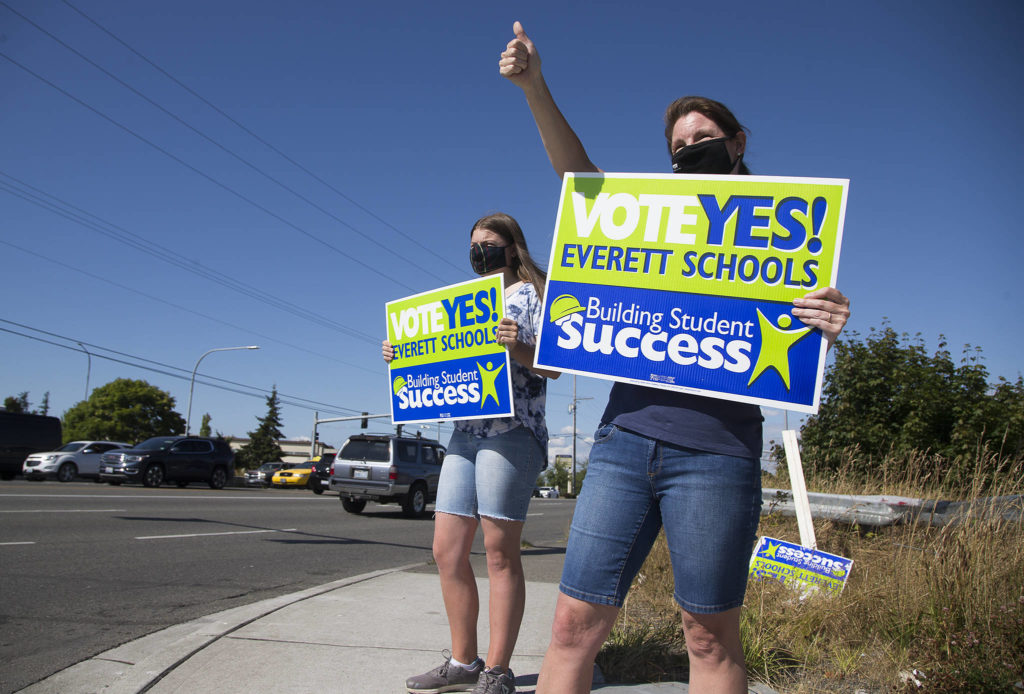EVERETT — Voters were turning down critical financing measures in two rural school districts Tuesday night.
And a $317.4 million bond in the Everett School District is failing by a slim margin. It garnered 58.1% of the vote, just shy of the state’s required 60% for passage of construction measures.
In Darrington, for the second time this year, voters were rejecting a short-term supplemental levy to cover programs and services not funded by the state. If results hold, this will be the first double levy failure in the county since Snohomish schools suffered the fate 27 years ago.
A similar story was unfolding in the Lakewood School District where an enrichment levy and a technology levy were losing Tuesday, as they did in February. Both Darrington and Lakewood had put forth leaner versions of levies voters rejected in February.
“We are profoundly disappointed. The school board recognized that Lakewood families are enduring some of the most difficult times in our district’s history,” Lakewood Superintendent Scott Peacock said in a statement. “They worked hard to balance that reality against the fact that local funding supports programs and staff not funded by the state. The adjusted propositions on the ballot reflected this recognition.”
Everett’s Proposition 1 contains money to tear down three of the district’s oldest elementaries — Madison, Jackson and Lowell — and build new campuses on the same sites.
The measure also would provide funds to construct new classrooms, make renovations to bolster STEM (science, technology, engineering and math) programs at each of the district’s three high schools, add playground equipment at eight elementaries and improve security systems at multiple schools.
Opponents argued the measure was too ambitious and needed to be scaled back. They also contended the district understated the long-term tab for property owners.
School officials said passage of the bond would not increase the district’s tax rate paid by property owners — they predicted it would dip a dime per each $1,000 of assessed value in the near future — as older debt is paid off.
If results hold, it will mark the district’s second bond setback in three years. In 2018, voters rejected a $330.8 million measure which primarily sought to pay for a new high school. The district dropped that project and shifted the dollars into improvements on all campuses in hopes of garnering community support.
In Darrington, voters were deciding the fate of a new property tax levy for 2021 and 2022 to supplement the district’s existing Educational Programs and Operation levy that expires in 2022. On Tuesday, 61% opposed the measure in the district, which also includes a handful of residents in Skagit County.
The two-year levy’s proposed tax rate of $1.09 for every $1,000 of assessed property value would generate an estimated $1 million. In February, voters turned down a supplemental levy with a $1.50 rate.
Proceeds from the measure were earmarked to fund lower class sizes, field trips, school supplies, staff professional development, facility maintenance, music and arts programs as well as athletics and other extracurricular activities.
Superintendent Buck Marsh has warned that if it didn’t pass, some programs would face cuts and other options, including returning to the ballot next year, would be considered.
In Lakewood, 56% of voters were turning down a four-year levy to generate roughly $27 million for classroom and campus operating expenses not covered by the state. The measure, if passed, would kick in when the district’s current enrichment levy expires at the end of this year.
School leaders sought the revenue to pay for school nurses, resource officers, playground supervisors, support staff for special needs students, athletic programs, band, clubs, drama, and facility and transportation maintenance.
The proposed tax rate was $2.11 per $1,000 of assessed property value next year, dropping to $2.04 in 2024. The proposal which failed in February had a top rate of $2.17.
Also Tuesday, a two-year Lakewood technology levy was faring better but still failing. It has support from 48.8% of voters and needs to get to 50% to pass. The proposed rate of 13 cents per $1,000 of assessed property value is half of what the district sought earlier in the year.
If the results hold, Peacock said, the loss of local funding will result in a gap of more than $6.3 million next year. Athletics, activities and vital academic programs will be subject to deep cuts or elimination in 2021, he said. Cuts to state funding and added expenses due to the pandemic will further contribute to the district’s financial challenges.
“The path ahead will not be easy,” he said. “Our children and community will lose out in the short- and long-term. But we will find our way through these hard times together. Our students depend on us.”
Jerry Cornfield: 360-352-8623; jcornfield@heraldnet.com. Twitter: @dospueblos.
Talk to us
> Give us your news tips.
> Send us a letter to the editor.
> More Herald contact information.


























